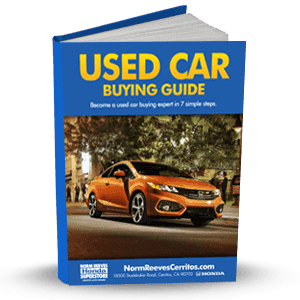Shop At Haya: Your Ultimate Shopping Guide
Discover the best shopping tips, trends, and deals for a smarter buying experience.
The Car Dealership Game: How to Win Big
Discover winning strategies in the car dealership game and unlock secrets to score unbeatable deals and maximize your savings!
Top Strategies for Negotiating Your Best Car Deal
When it comes to negotiating your best car deal, preparation is key. Start by researching the market value of the car you intend to purchase. Utilize online tools and resources to gather information about its MSRP, invoice price, and current market trends. This knowledge will empower you during the negotiation process. Additionally, consider getting pre-approved for financing, as this can give you more leverage. Dealers often inflate prices to cover financing charges, so having your financing in order can lead to a better deal.
Another effective strategy is to build rapport with the salesperson while maintaining a firm stance on your budget. Use effective negotiation techniques such as the 'walk-away' strategy, which allows you to show that you are willing to walk away if your terms are not met. This can create urgency for the salesperson to offer you a better deal. Don't forget to be aware of timing; the end of the month or end of the year can be advantageous times to negotiate, as dealers may be trying to meet sales quotas. By employing these tactics, you can secure a deal that aligns with your financial goals.

Understanding the Fine Print: What to Look for in a Car Purchase Agreement
Buying a car is an exciting process, but understanding the fine print in a car purchase agreement is crucial to ensure a smooth transaction. First and foremost, always look for the total cost of the vehicle, which includes not only the selling price but also taxes, fees, and any additional charges. This total can significantly impact your budget if not clearly outlined. Additionally, pay close attention to the interest rates if you're financing the purchase, as they can vary greatly between lenders. Make sure to ask questions about any terms that are unclear, such as how long the warranty lasts and what it covers.
Another critical aspect to consider is the disclosure of terms regarding trade-ins or down payments. Some agreements may have clauses that could potentially limit your options down the line. It’s also wise to check for any hidden fees that might be tucked away in the agreement. This could include dealership fees or processing fees that can increase the overall cost of the purchase. Finally, never sign a contract without reading it thoroughly. A clear understanding of all the terms and conditions will not only protect you but can also provide you with leverage in negotiating a better deal.
Is Buying or Leasing a Car Right for You?
When deciding whether buying or leasing a car is right for you, it's vital to assess your personal needs and financial situation. Buying a car can provide long-term benefits, such as ownership and the absence of monthly payments after the car is paid off. It also gives you the freedom to modify your vehicle as you wish. However, it often requires a larger down payment and can result in higher monthly payments. On the other hand, leasing typically entails lower monthly payments and the option to drive a new car every few years without the maintenance costs associated with ownership.
To determine which option best suits your lifestyle, consider the following factors: Annual mileage, budget, and vehicle usage. If you drive long distances or require a vehicle for years to come, buying might be a more economical choice in the long run. In contrast, if you prefer driving a new car frequently and want to keep your expenses predictable, leasing could be the way to go. Ultimately, the decision hinges on your unique circumstances and how you prioritize factors like cost, flexibility, and vehicle ownership.